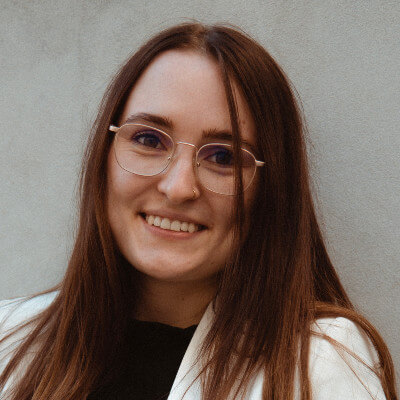A world where every company understands/ sees itself as part of the whole and measures its success based on added value for the entire planet – to put it briefly:
Sustainability as a matter of course!
This vision is the basis of our mission: not only defining sustainable economics but also making it visible to the outside world. Only then can these sustainable measures be perceived and honored by consumers.
This appreciation is the prerequisite for a change of the current paradigm towards an economy that is fit for the future and generations to come. Following the principle “Economy should serve the people, not vice versa” we offer solutions.
Since 2011 already we are following our mission and acting on different levels. In doing so, we manage the balancing act between a profound/ strong understanding of sustainability and the mechanism of a free market economy.
The CSE standard offers you a unique and consistent criterion for corporate sustainability. In today´s world it is possible to do business in a sustainable way and to make it verifiable and transparent, as shown by our CSE standard. We support both companies in making sustainable alternatives visible and private individuals in finding them.
In various working groups and expert panels, we discuss current developments and findings and develop ways to exploit further sustainability potential. We help to make the congruence or discrepancy between theory and practice measurable and comprehensible. We help making it visible and comprehensible if there is a congruency or discrepancy between sustainability in theory and practice.
With our product and company certifications we contribute to transparency in the area of quality labels and thwart the concept of greenwashing. Beyond that, we are committed to participating in political discourses on sustainability and thus bringing in our know-how on various levels.
The core team of GfaW is backed by the advisory board, the office assistance and freelancers in the areas of marketing and IT.
Sophie von Lilienfeld-Toal
Dipl. Ing. Agrarwissenschaften, Gründerin und geschäftsführende Gesellschafterin

Nina Bailer
Dipl. Ernährungswissenschaftlerin, Gesellschafterin

Isabell Rzepecki
B.A. BWL, M.Sc. Ökologische Landwirtschaft,
Öffentlichkeitsarbeit und Gesellschafterin
Der Beirat untersützt die GfaW in inhaltlichen und strategischen Fragen.
GfaW is the owner of the CSE, NCP, NCS and NATURE THANX standards. With our company and product certifications, manufacturers of sustainable and ecological products can make their consistent sustainable actions and production visible and communicate them to the outside world.
Our main ambition is to support consumers on their way to make conscious and sustainable buying decisions.
Certifications provide orientation and are trustworthy as they fulfil a high standard of quality. Furthermore, they allow consumers to navigate through all the ecological and non-ecological as well as sustainable and non-sustainable produced products on the market.
GfaW develops the criteria of the standards, the procedure and the design of the labels. The intention and basis for the decision-making process is the consensus between the standard users and the experts. Practical implementations in daily business as well as regular work group meetings eventually result in finding a consensus.
Together we can achieve more than alone. To offer you the best possible support for more sustainability in your company, we work together with the following partners:
Work Group "Lived Sustainability"
The work group “lived sustainability” regularly deals with the criteria of the CSE standard, the background of ethical actions and the tension between the desire for a sustainable economy and the actions that are actually taken. Participants are CSE-certified companies, invited experts, certification bodies and interested parties. Our expert panel consists of the GfaW, certification bodies, scientists and label users. Regular transfer of ideas and knowledge form the basis of our cooperation. Together we develop sustainable, hence social, ecological and economic requirements for companies and organizations.
Work Group "Ecological Raw Materials"
The work group “ecological raw material” deals with the requirements of ecological natural products.
Food and unprocessed agricultural products can be labeled organic. Basis for this is the EU-Eco-Regulation. Anyhow, there is no comparable eco-regulation for natural products, that are produced and processed by agriculture or forestry but are not food.
Consumers expect and claim that natural products are also produced in natural processes as far as possible. Thus, there is a huge demand for more transparency and organic quality.
The work group aims for paving the way for more transparency as well as documenting, securing and making quality visible.
A central role plays the replacement of petrochemical starting materials with plant-, sometimes animal- or fungus-derived substances. This replacement is absolutely pioneering especially performed by the producers of natural cosmetics, ecological detergents and cleaning agents as well as household articles. After all, the main aim is to guarantee or even improve the functionality of the products.
If the plant- or animal-based raw materials also come from organic farming, then a truly ecological non-food product is generated!
If you are interested in attending a working group meeting, please email or call us.
Consulting:
sustaineration
The sustainability consultancy sustaineration expands our range of consulting services for sustainably operating companies, especially for the implementation of ISO 14001.
ClimatePartner
ClimatePartner cooperates with us together with the sustainability label CSE. Certified companies receive attractive conditions on CO2 calculation and offsetting.
Thereby we complete our offer of measuring, evaluating and communicating sustainability measures in a customer-friendly manner.
inci-experts
inci-experts offers expertise in the field of chemistry from lab to shelf.
Certification Bodies:
EcoControl GmbH
A certification body focusing on the organic non-food sector.
Prüfgesellschaft ökologischer Landbau mbH
Zertifizierungs- und Kontrollstelle für ökologische Lebensmittel, Kosmetik und Naturprodukte